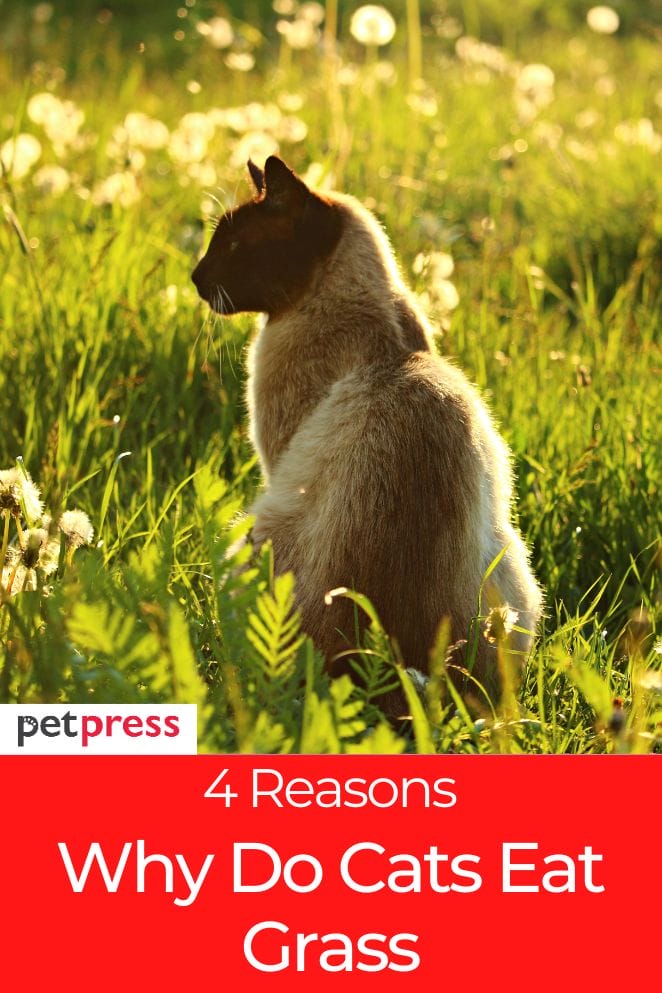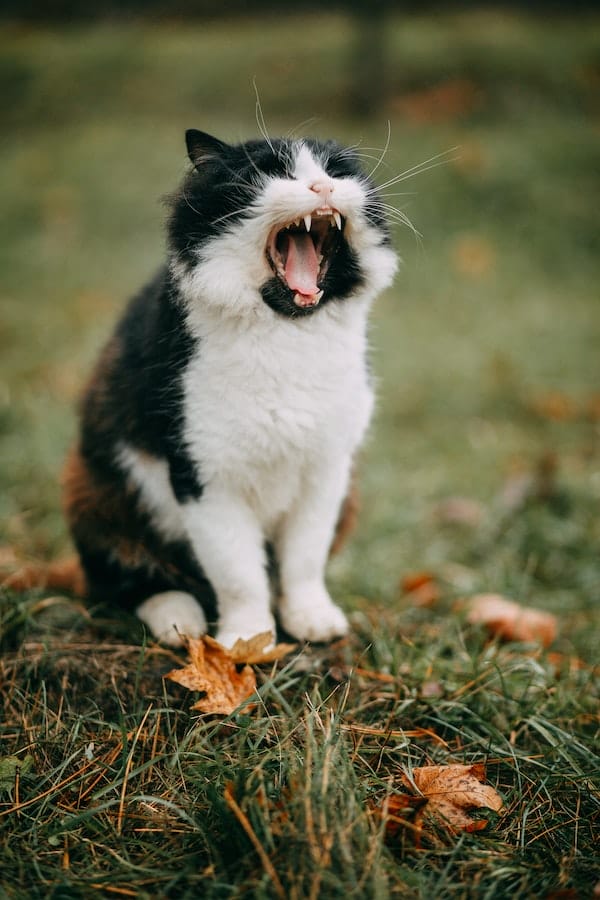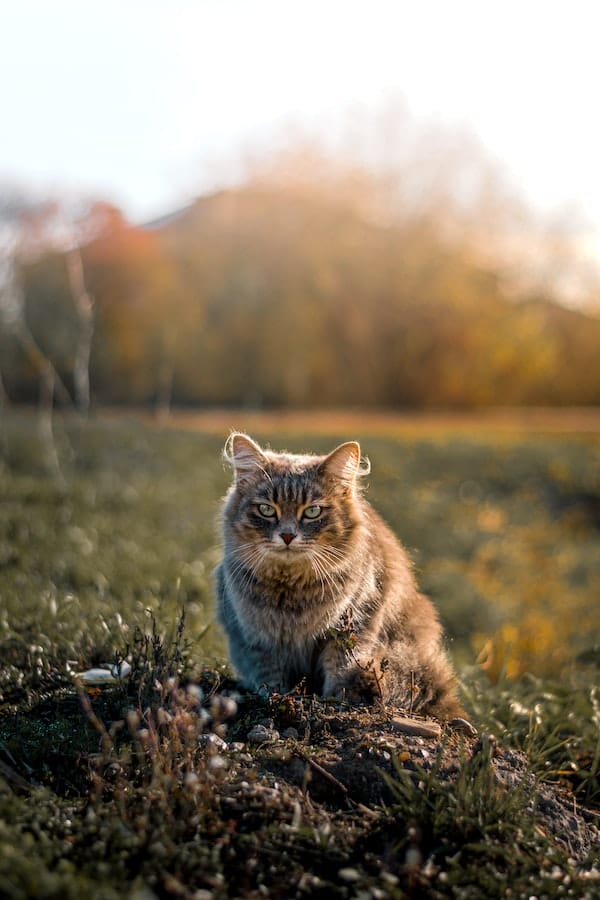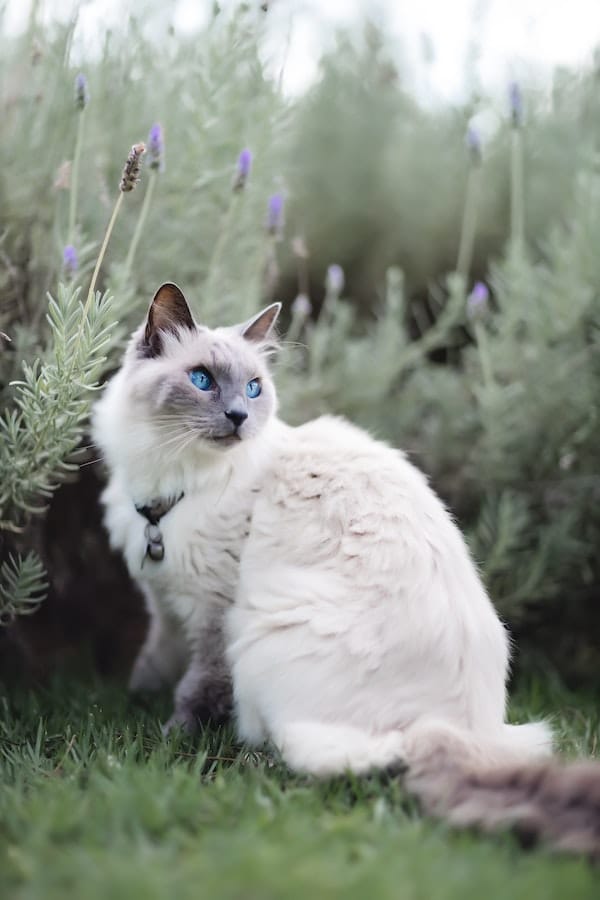
Cats have long been known to be curious creatures, often exhibiting strange behaviors that baffle their owners.
One such behavior is a cat’s penchant for eating grass.
While it may seem odd and even concerning at times, there are actually various reasons why cats eat grass.
From health benefits to simply enjoying the taste, understanding why cats eat grass can help to put owners at ease and ensure their furry friend is getting the nutrition they need.
What are the possible reasons why cats eat grass?

The exact reasons why cats eat grass are not fully known, but there are several theories to explain this behavior. These includes:
Health benefits
One possible explanation for why cats eat grass is that it can provide a number of health benefits.
Eating grass can help to keep cats’ digestive systems in good working order, as it contains high levels of fiber and other nutrients that are beneficial for digestion.
Additionally, the rough texture of grass helps to naturally clean cats’ teeth and gums, reducing plaque build-up.
Eating grass can also help cats to induce vomiting, which may be helpful if they have ingested something that their body is having difficulty digesting.
Enjoyment of the taste/texture
Another potential reason why cats eat grass is simply that they enjoy the taste and texture.
Cats are known to be finicky eaters, so it’s possible that they simply prefer the taste of grass to their regular food.
Additionally, some cats may enjoy munching on grass due to its crunchy texture, which is known to have a calming effect on them.
Nutritional deficiencies
Cats may eat grass because they are suffering from nutritional deficiencies.
The lack of certain vitamins and minerals in a cat’s diet can lead to them craving other sources of nutrition, such as grass or plants.
If a cat is exhibiting this behavior, it may be beneficial to consult a veterinarian and explore options for supplementing its diet with appropriate vitamins and minerals.
Instinctive behavior
Finally, cats may eat grass simply as an instinctive behavior.
Cats are natural hunters and scavengers, so their desire to forage for food in the wild may have been passed down through generations.
Additionally, some experts believe that consuming plants can help cats feel more connected to their environment, as they can smell, explore, and sense the flavor of the grass.
Is eating grass harmful to cats?

Eating grass is generally not harmful to cats and can even be beneficial in some cases.
However, it is important for owners to ensure that the grass their cat is consuming has not been treated with any chemicals or pesticides, as these can be toxic if ingested.
Additionally, eating too much grass could potentially lead to an upset stomach in some cats, so it’s important to be mindful of the amount they are consuming.
What to do if your cat eats grass?

If you notice that your cat is frequently eating grass, it’s important to take the time to observe and understand its behavior.
Observe the amount of grass
It’s important to observe the amount of grass that your cat is eating, as this can help you determine whether it is doing so out of necessity or simply because it enjoys the taste.
If you notice your cat consuming large amounts of grass, it could be an indication that they are suffering from nutritional deficiencies and may require additional supplements in their diet.
Observe the type of grass
It’s also important to observe the type of grass that your cat is eating.
If your cat is consuming grass from areas with potential exposure to pests, toxins, or other chemicals, it could be dangerous if ingested.
Additionally, some cats may have a preference for certain types of grass, such as wheatgrass or catnip, so it may be beneficial to offer these options if available.
Talk to your vet
Finally, it is important to consult a veterinarian if you have any concerns regarding your cat’s eating behavior.
Your vet will be able to provide advice and guidance on proper nutrition for your cat, as well as potential dietary supplements that may be beneficial.
Additionally, they can help identify any underlying health issues that could potentially be causing your cat to eat grass.
Final thoughts
Eating grass is a normal behavior for cats, and in most cases, it is not harmful.
However, if you notice your cat frequently consuming large amounts of grass or displaying any other odd behaviors, it may be beneficial to consult with a veterinarian.
Keeping an eye on the type and amount of grass that your cat is eating can help ensure that they remain safe and healthy.


GIPHY App Key not set. Please check settings